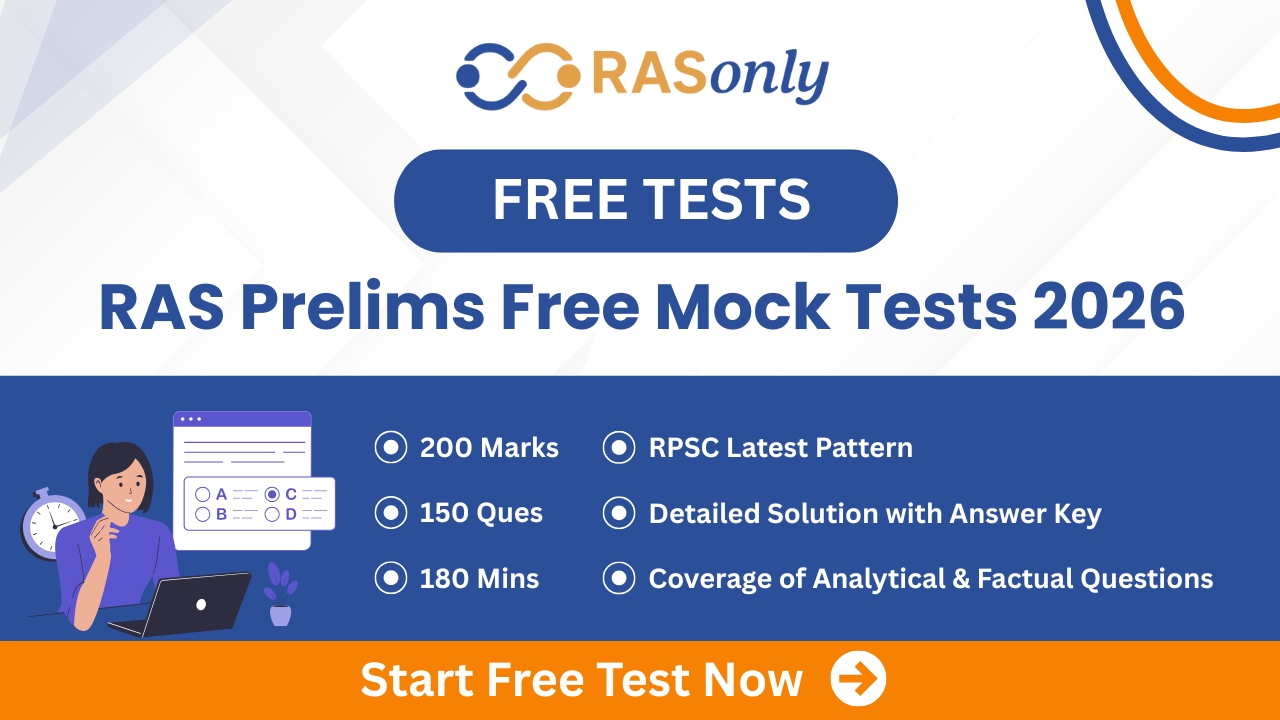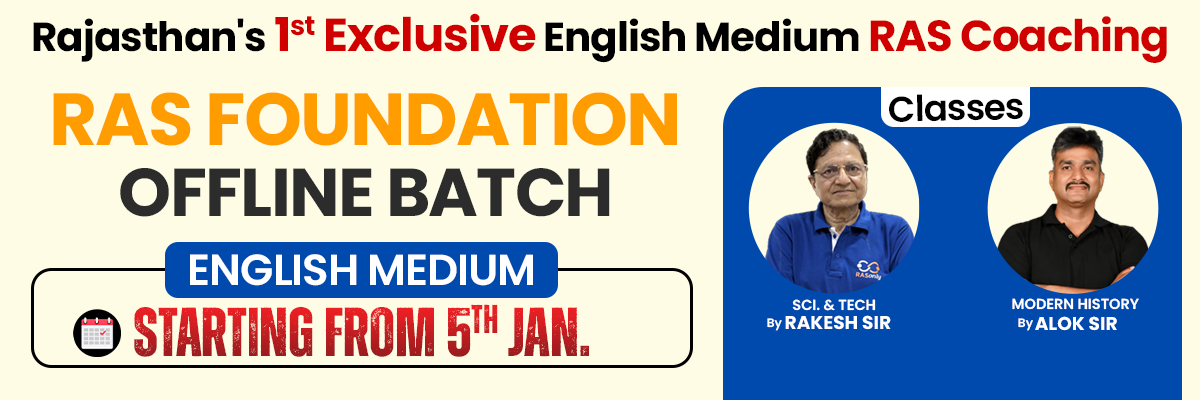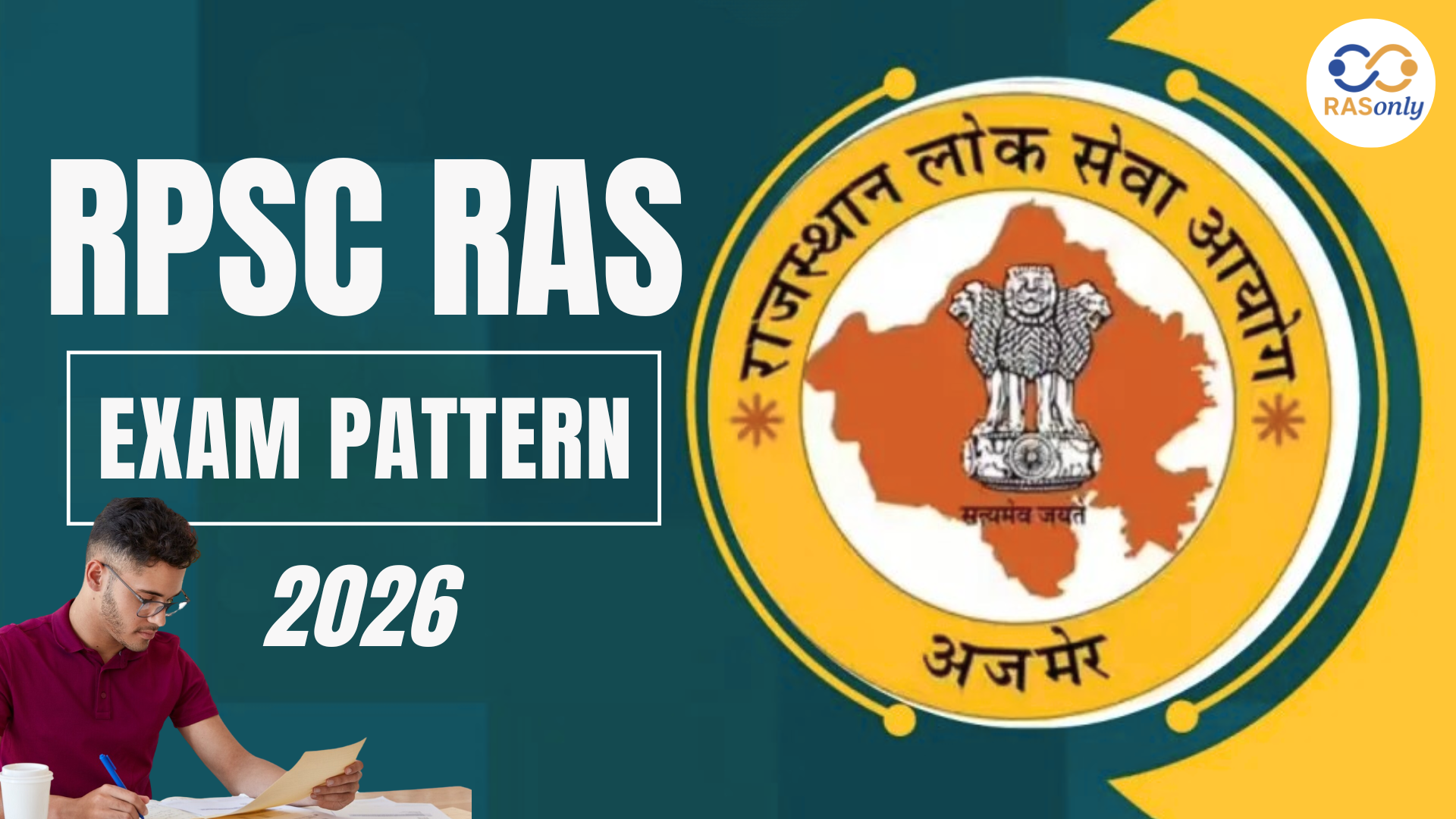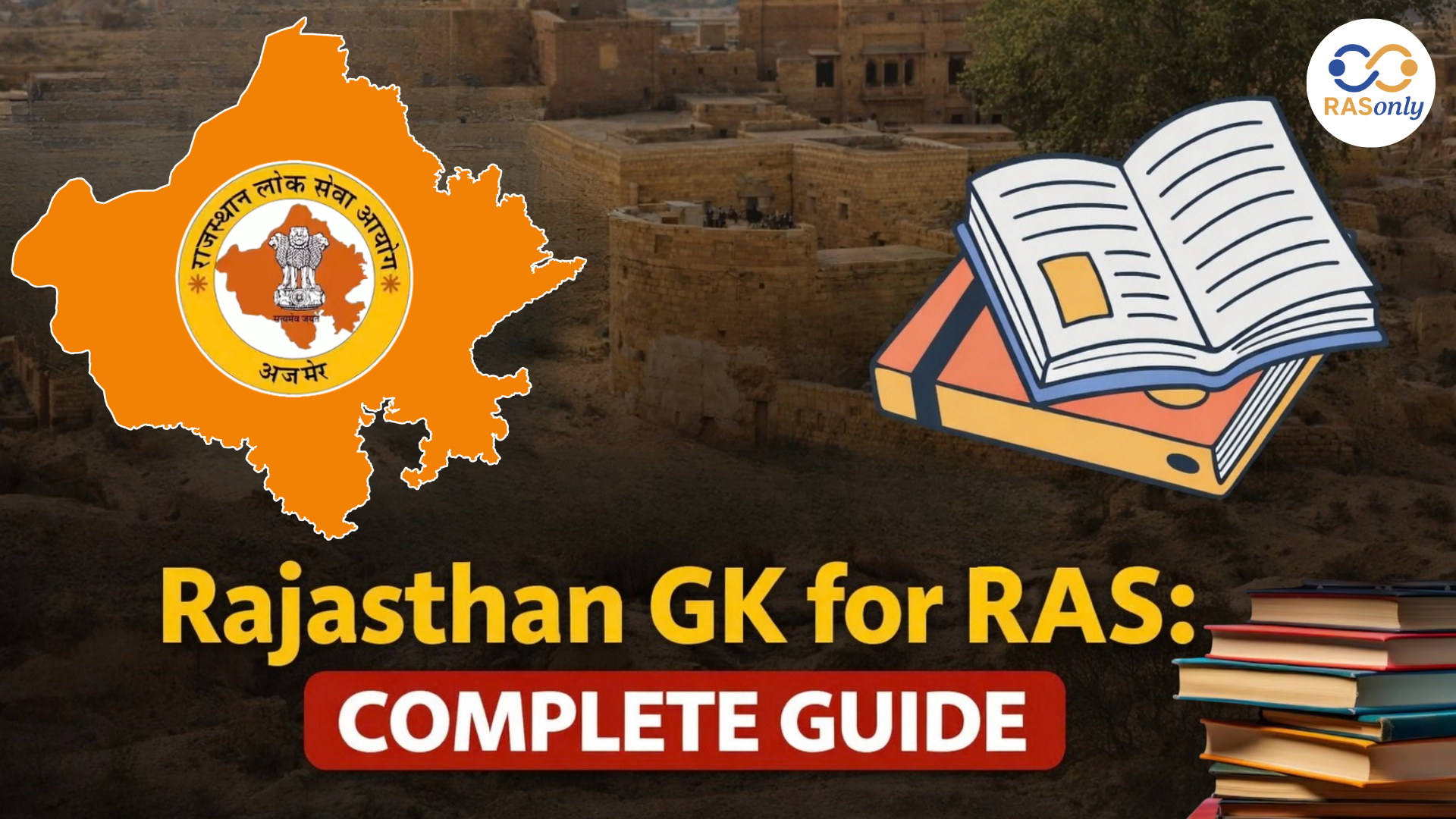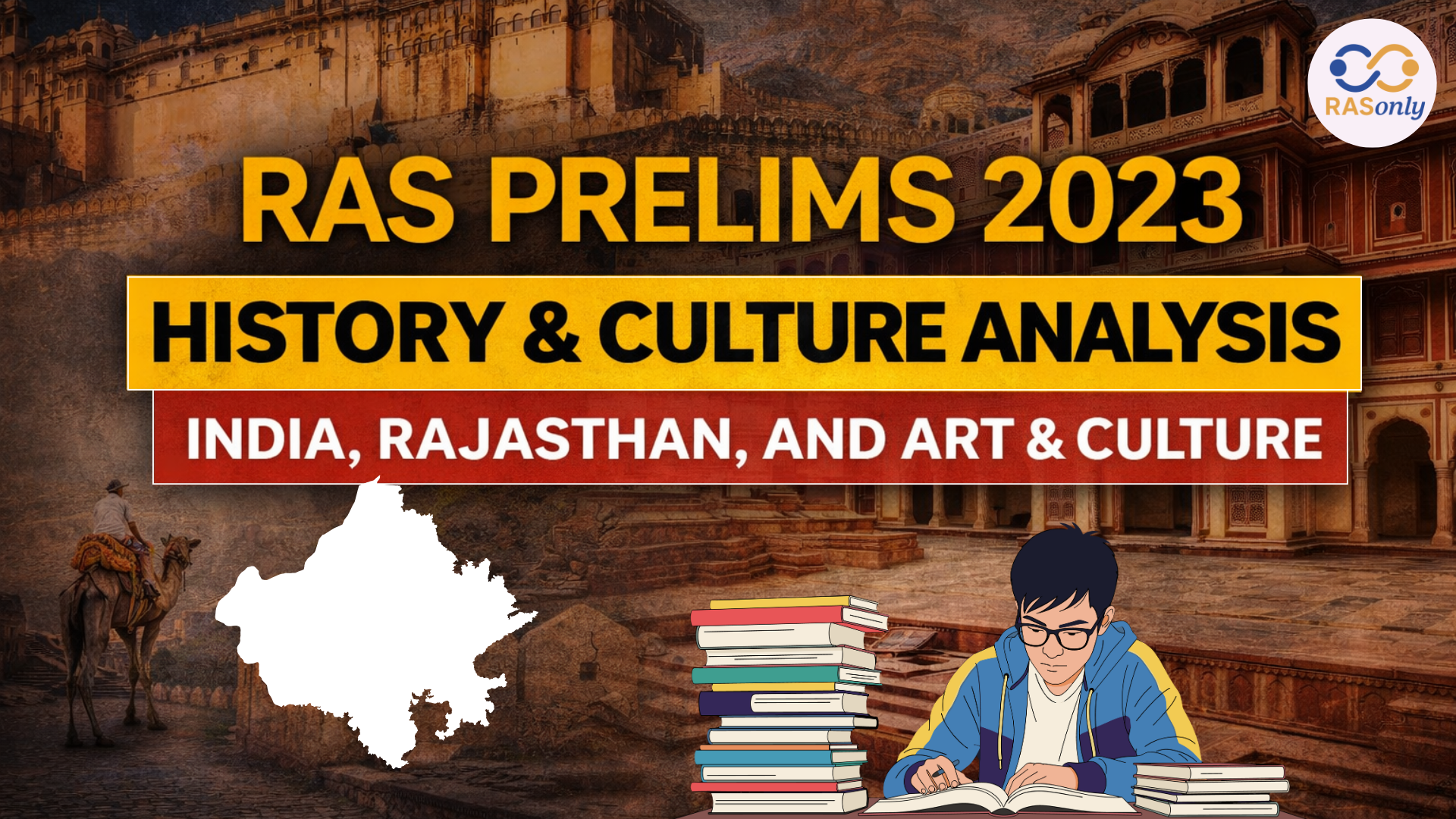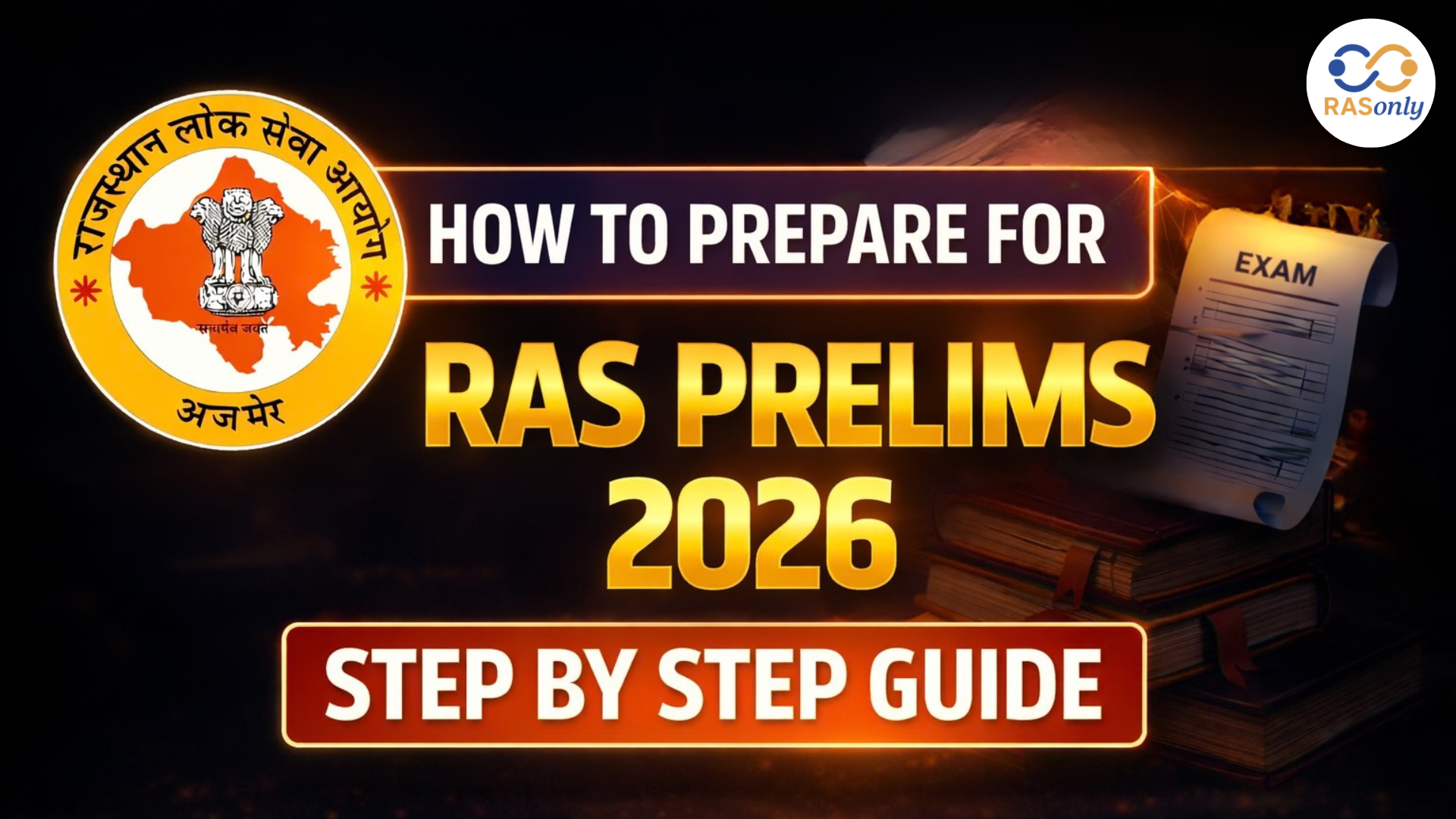RPSC RAS 2026 Subject Wise Exam Pattern for Prelims, Mains & Interview Details
- >
- RAS Preparation Resources
- >
- Lokpal and Lokayukta: Anti-Corruption Framework in India
Lokpal and Lokayukta: Anti-Corruption Framework in India

Get in Touch with RASonly!

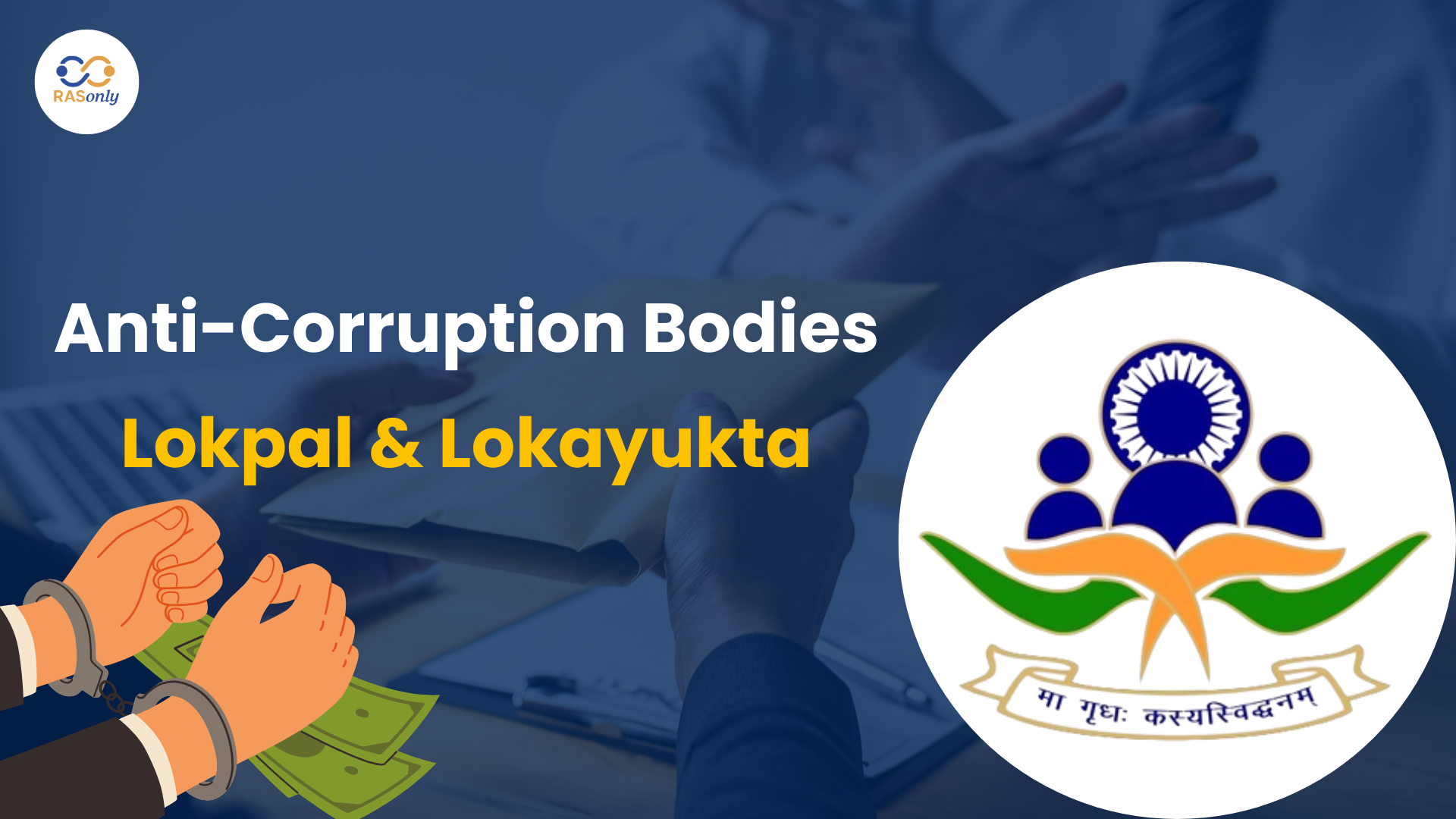
Corruption is a humongous issue to governance integrity and trust. In an attempt to end this structural dilemma, the Indian parliament passed the Lokpal and Lokayuktas Act, 2013, and institutionalized anti-corruption systems, at both central and state-levels. These are quasi-judicial institutions like the Lokpal at Union level and Lokayuktas in the States ombudsman type of institutions. They have the mandate to permit and investigate complaints against the public functionaries and accordingly enable the emergence of transparency and accountability in the public administration.
Key Details for RPSC RAS Mains
Background and evolution
- Swedish origin (1809)
- The idea of Ombudsman was first derived in Sweden way back in 1809.
- There was a non-partisan official to investigate complaints relative to abuse of powers by the executive.
- India in introduction (1960s)
- Ombudsman-like institution was suggested by the then Union Law Minister, Mr. Ashok Kumar Sen in early 1960s.
- In 1963 Dr. L. M. Singhvi gave names of Lokpal (Centre) and Lokayukta (States).
- First ARC (Administration Reforms Commission) (1966)
- The First Administrative Reforms Commission (ARC) officially proposed the creation of Lokpal and Lokayuktas to hear the grievances of the citizens about corruption.
- First Lokpal Bill (1968)
- In 1968, the initial Lokpal Bill was presented in the Lok sabha.
- It however lapsed upon the dissolution of parliament.
- The bill was proposed several times in 1968 through 2011, only to fail to pass on political gridlocks or failure to reach a consensus.
- India Against Corruption Movement (2011)
- The impact of a country-wide anti-corruption campaign organised by Anna Hazare in 2011 accelerated the clamour over the powerful Lokpal.
- The movement attracted mass action, and it compelled the government to take steps in this direction.
- Lokpal and Lokayuktas Act, 2013
- In December 2013, Lokpal and Lokayuktas Act was enacted.
- It became effective on 16 January 2014 offering a legislative structure to fight corruption on central and state levels.
Recently in news
- Lokpal of India also known as an anti-corruption body that was created through a statute, the Lokpal and Lokayuktas Act, 2013, observed its first Foundation Day in January 2025.
Objective and Scope
The Act makes provision of:
- Lokpal in the Union level,
- Lokayuktas at state level.
The Lokpal will be vested with the powers to inquiry into allegations of corruption made against the following:
- The Prime Minister (except in particular cases),
- Union Ministers,
- Parliament Members
- Groups: A, B, C and D Officer, employees of Central Government
- Presidents and secretaries of the NGOs which carry out the task of accepting foreign funds of more than 10 lakhs annually, as per the FCRA, 2010.
Composition
- Total Members:
- The Lokpal will comprise 1 Chairperson and up to 8 Members.
- Judicial Representation:
- At least half the members have to be Judicial members.
- Social Representation
- At least 50% of the members should be from the following groups
- Scheduled Castes (SCs)
- Scheduled Tribes (STs)
- Other Backward Classes (OBCs)
- Minorities
- Women
- Persons with Disabilities (PWDs) (if included as "aliens" refers to this group or foreign origin, clarify if needed)
- At least 50% of the members should be from the following groups
- Eligibility for Chairperson:
- The Chairperson of Lokpal can be:
- A former Chief Justice of India, or
- A former Judge of the Supreme Court, or
- A distinguished person in the field of public affairs.
- The Chairperson of Lokpal can be:
Selection Committee
The President makes appointments on the advice of a committee comprising of:
- Prime Minister (Chairperson),
- Speaker of Lok Sabha,
- Leader of Opposition (or largest opposition party),
- Chief Justice of India (or nominee),
- One eminent jurist nominated by the President.
Power and functions
- Supervision of the investigations
- Is able to oversee investigations by the Delhi Special Police Establishment (DSPE) in the referred cases.
- Search and Seizure
- Is able to authorize agencies to undertake search and seizure of documents during investigations.
- Central vigilance Commission (CVC) oversight
- The CVC should also report to Lokpal on cases he is referred to; Lokpal can also give directives on how to dispose of complaints.
- Authorities of the Civil Courts
- Lokpal also has authority of a civil court under the Code of Civil Procedure, 1908 to carry out preliminary inquiries.
Difference Between Lokpal and Lokayukta
|
Aspect |
Lokpal (Central Level) |
Lokayukta (State Level) |
|
Jurisdiction |
Operates at the national level |
Operates at the state level |
|
Scope |
Focuses on central government officials and agencies |
Focuses on state government officials and agencies |
|
Appointment |
Appointed by the President of India on recommendation of a committee |
Appointed by the Governor on recommendation of a state-level committee |
|
Composition |
Chairperson + up to 8 members (judicial and non-judicial) |
Varies by state; usually includes Lokayukta, Upa-Lokayukta, and others |
|
Oversight |
Investigates corruption in central government institutions |
Investigates corruption in state government institutions |
|
Functions |
Handles cases of bribery, corruption, and maladministration at national level |
Handles similar cases at the state level |
|
Accountability |
Accountable to the President of India |
Accountable to the Governor of the state |
Challenges of Lokpal and Lokayuktas
- Delays of Appointments- Lokpal became active in 2019, six years after the 2013 Act.
- Absence of Constitutional Backing- Lokpal is the statutory structure that does not have any constitutional support.
- Limited Jurisdiction- Judiciary included and limited the complaint of the PM in specific matters.
- Low Public Awareness- The people are not aware of the role and procedure in making complaints.
- Poor Resources - Lack of personnel, finance, and facilities hinders operation.
- Political Interference- Influence in appointments has a dismissive influence.
- Lengthy Procedures -It takes time to file a complaint with technicalities that prevent people to report publicly.
Examples
- Uttar Pradesh Lokayukta - Reveals disproportionate assets owned by the ministers during the regime of Mayawati.
- Karnataka Lokayukta: It had carried out sting operations; had exposed a minister who was forced to resign.
- Delhi ACB-Set up in the pattern of Lokayukta; trapped the officers taking bribes in sting operations.
- Tamil Nadu Lokayukta- Eyeing authorities with the excess wealth; action was enforced.
Effect of Lokpal and Lokayukta Organizations
- Formation and Functioning -Signalled a breakthrough in the fight against corruption on central and state levels.
- Enhanced accountability- The existence of such institutions has promoted self-reporting of corruption among the people.
- Research and Suggestions – A number of investigations caused action on corrupt authorities.
Committees and its Recommendations
- Santhanam Committee (1962) - suggested the establishment of a body to discharge duties of inquiry and punishment of corrupt officers in the government.
- Law Commission -20 th Report (1967)- Proceanon of a non- political and freestanding central body to deal with the issue of corruption.
- First Administrative Reforms Commission (19661970) - Proposed the designation of Lokpal and Lokayukta, as designed on the model of Ombudsman, to deal with complaints against high officials.
- Second Administrative Reforms Commission (2005) - Recommended an independent and empowered body to check corruption at the central as well as at the state level.
- ARC Report on Ethics in Governance (2007) - Emphasized on the need to learn ethical governance and an elaborate anti-corruption system.
- Parliamentary Standing Committee (2011) Parliamentary Standing Committee reviewed the Lokpal Bill under Chapter 3 proposed amendments and made the necessary inputs that led to the 2013 Act.
Steps to Strengthen Lokpal and Lokayukta
- Streamline Complaint Process- Reduce procedures and make complaints more accessible by the citizen.
- Grants Suo Motu Powers - Grant Lokpal and Lokayuktas the power to initiate investigations on their own in a case that is in the interest of the general population.
- Make Proper Provisions– Have adequate resources in terms of man power, finance and facilities to operate.
- Guard the Independence - Ensure that the institutions cannot be used politically and hence they are neutral.
- Creating Awareness to the people: Tell people about the role, powers and procedures of Lokpal and Lokayukta.
- Advance Coordination - Enhanced liaison with law enforcers and vigilance departments to act successfully.
- Regular Revision of the Act- Regularly review and revise the law to eliminate the loopholes and amplify the strength.
- Enactment in all States-Both the succeeding states which had not implemented Lokayuktas but had the promise of a better representation to be installed as soon as possible.
Conclusion
Lokpal and Lokayuktas are the key institutions through which corruption must be combated in India. Somehow, despite the difficulties, they have been able to demonstrate promise in fostering accountability. These powers, resources and their independence should be strengthened and this is important in helping them be more efficient.
Post Category
- RAS Salary
- Result
- RAS Admit Card
- RAS Job
- RAS Cutoff
- Preparation Tips
- RAS Answer Key
- RAS Exam Analysis
- RAS Syllabus
- RAS Previous Year Papers
- RPSC RAS Exam Pattern
- RAS Interview
- RAS Mains Exam Date
- RAS Vacancy
- RAS Test Series
- RAS Best Books
- RAS Preparation Resources
- RAS Coaching Centre
- History
- Polity
- Geography
- Economics
- Science
- Art and Culture
- RPSC RAS Application Form
- RPSC RAS Notification
RASonly Interview Guidance Program

Mr. Ashok Jain
Ex-Chief Secretary Govt of Rajasthan
- IAS officer of the 1981 batch, Rajasthan cadre.
- Passionate about mentoring the next generation of RAS officers with real-world insights.
- Got retired in Dec 2017 from the post of Chief Secretary of the state of Rajasthan.

Mr. Guru Charan Rai
Ex-ASP / SP in Jaisalmer
- Guru Charan Rai, IPS (Retd), retired as Inspector General of Police (Security), Rajasthan, Jaipur in 2017.
- Served as ASP and SP in Jaisalmer, Nagaur, Sri Ganganagar, Sawai Madhopur, Dausa, Sikar, and Karauli.
- He also held key positions as DIGP and IGP in the Law and Order division.

Mr. Rakesh Verma
Ex-IAS Officer, B.Tech, MBA, and M.A. (Economics)
- IAS officer of the 1981 batch and retired in Chief Secretary Rank.
- Civil servant of high repute and vast experience.
- Has been teaching UPSC CSE subjects for the last six years.
Related Post
Daily Current Affairs for RAS Exam Preparation 2026
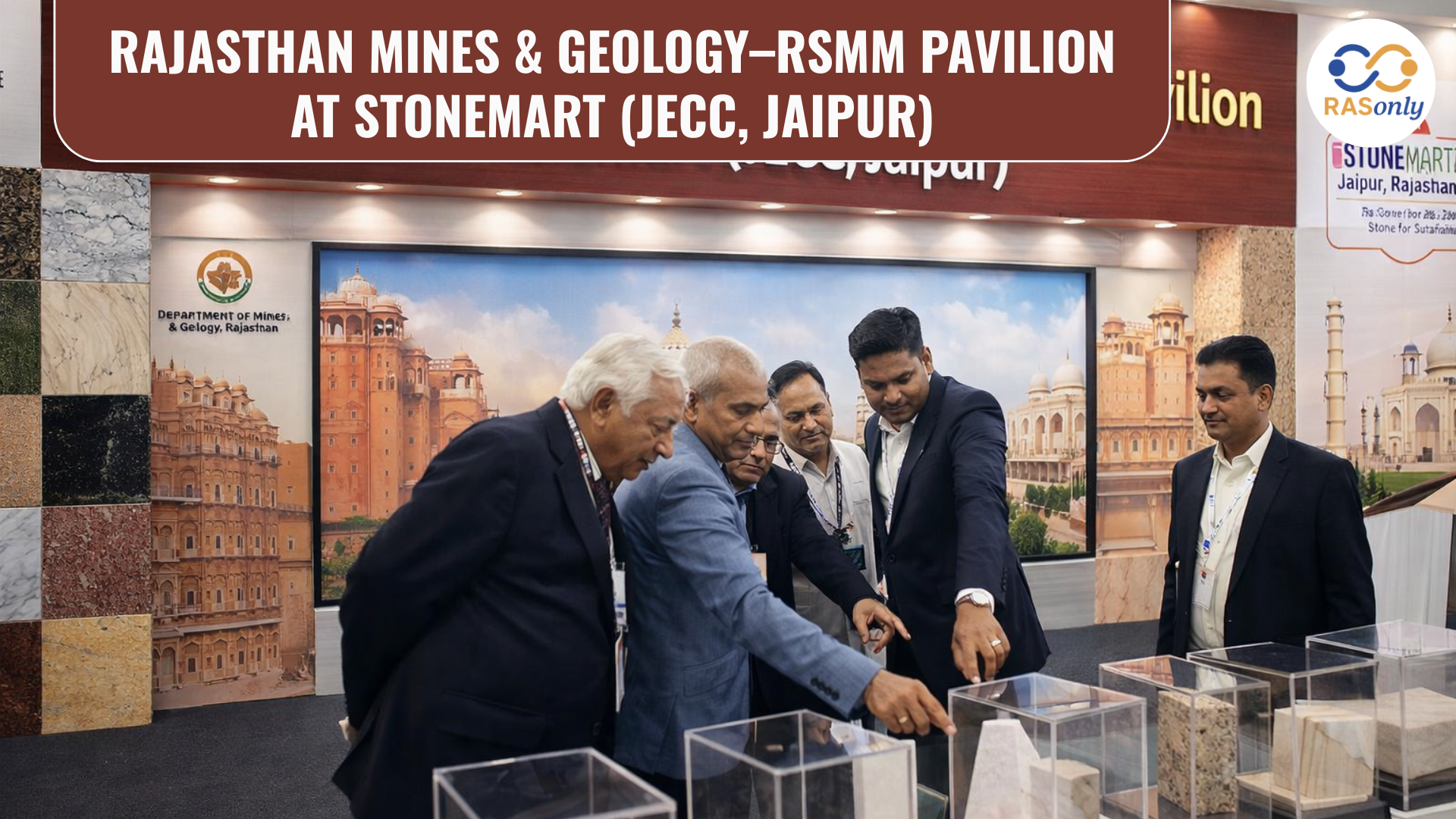
Rajasthan Pavilion Shines at Stone Mart Jaipur 2026
February 07, 2026
Rajasthan Achieves 3,000 MW Under PM-KUSUM Scheme
February 07, 2026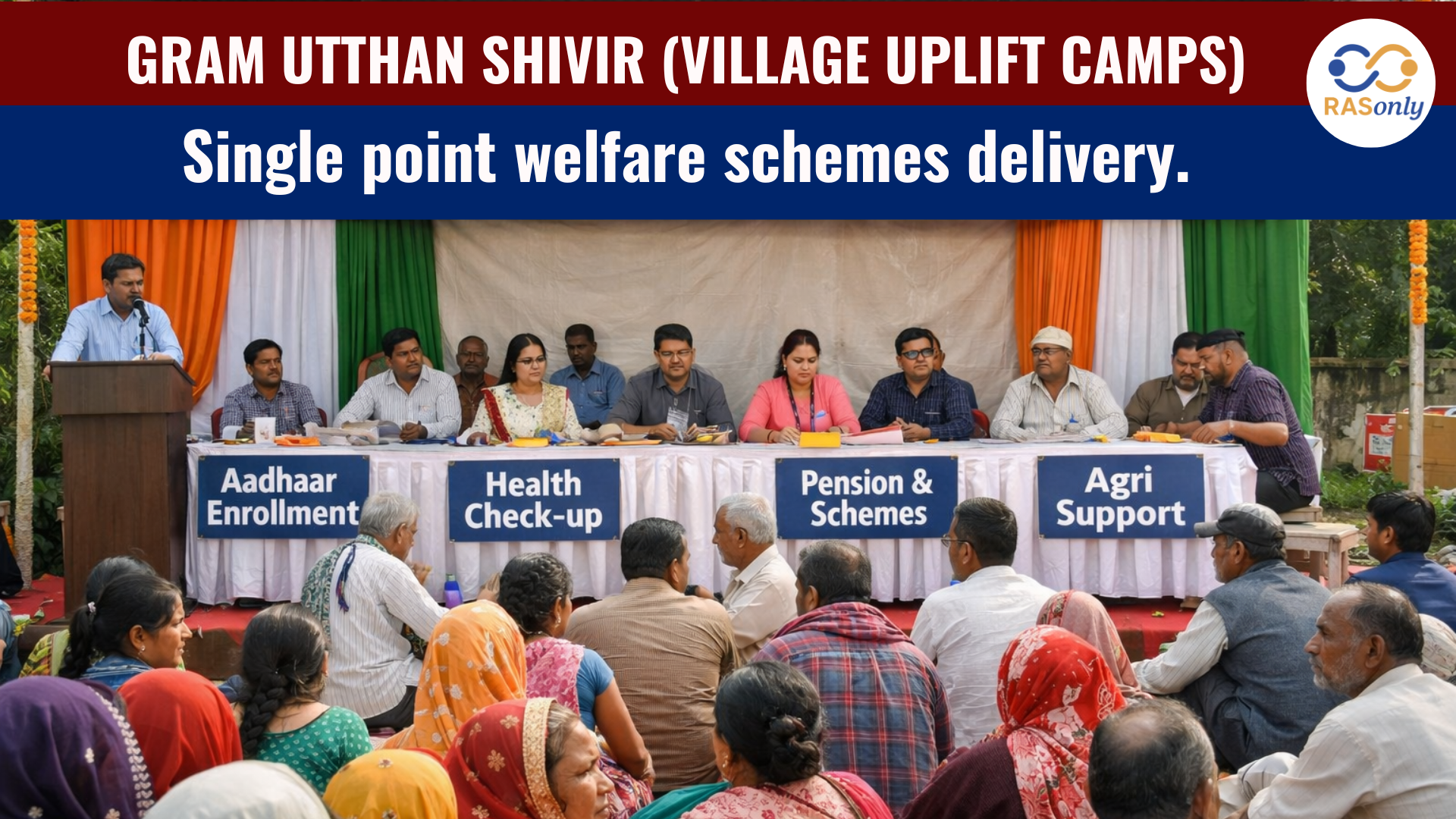
Gram Utthan Shivirs Strengthen Rural Governance in Rajasthan
February 07, 2026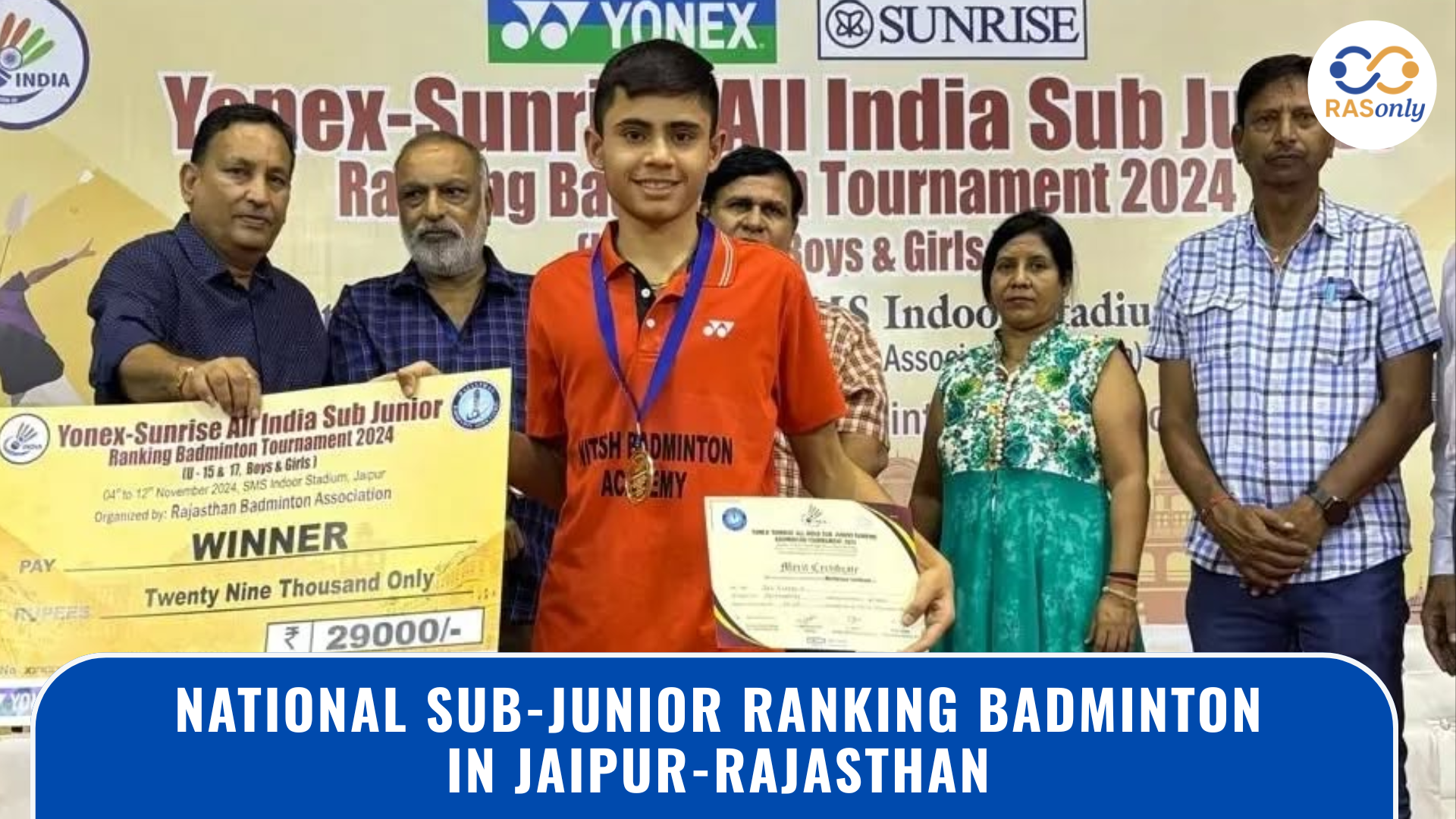
Jaipur Badminton: 72-Minute U-15 Final Creates Record
February 06, 2026👉🏻 Register Today to Join Classes! 👍🏻
- Team RASOnly -
🎯 Benefits of RASOnly Coaching:
- ✅ 1:1 Mentorship with RAS Officers
- ✅ Experienced and Expert Faculty
- ✅ Free Library Access
- ✅ Daily Minimum 4 Hours Must
- ✅ Comprehensive Study Material
- ✅ Regular Tests & Performance Analysis
- ✅ Personalized Guidance & Doubt Solving
- ✅ Online & Offline Class Options
- ✅ Affordable Fees with Quality Education
Key Highlights:
- 👉🏻 3-Day Refund Policy
- 👉🏻 New Batch Starting from 04 August
- 👉🏻 Registration Amount: Only ₹1000

